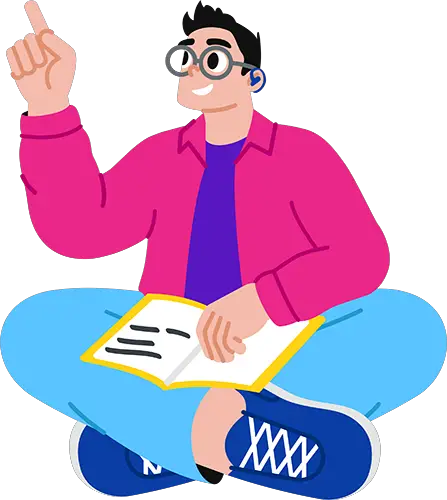CHOOSE YOUR FREE ICBC MOTORCYCLE KNOWLEDGE TEST
Those with a BC driver’s license will find the motorcycle licensing process more straightforward. If you fall into this category, your first step will be to pass a motorcycle knowledge test. We have prepared this motorcycle practice test to assist individuals studying for a Class 6 or 8 British Columbia motorcycle licence.
Acing Your ICBC Motorcycle Knowledge Test
A Complete Guide
 So, you’re thinking about taking the ICBC Motorcycle knowledge test. You’re excited to get your motorcycle license but maybe a little nervous. This is a big step towards the freedom of the open road, and you must ensure you are entirely prepared. Many people in British Columbia want to ride, so it is critical to be confident on test day.
So, you’re thinking about taking the ICBC Motorcycle knowledge test. You’re excited to get your motorcycle license but maybe a little nervous. This is a big step towards the freedom of the open road, and you must ensure you are entirely prepared. Many people in British Columbia want to ride, so it is critical to be confident on test day.
Think of this blog post as your guide to driver training. It goes deeper than a basic motorcycle manual. It’s packed with helpful tips, insider info, and everything you need to ace that test and confidently hit the road. And remember, taking practice tests can prepare you for the test ahead.
Gearing Up for Success: Your ICBC Motorcycle Knowledge Test Prep
The ICBC Motorcycle knowledge test isn’t just about memorizing. Sure, you could learn facts and pass, but it’s more about understanding how to be a safe and responsible rider. This will make you safer overall on the road. The test covers traffic rules, motorcycle handling, and hazard perception.
Understanding the Road Rules: It’s Not Just About Cars
You’ve probably already got the basics of driving a car down. However, the ICBC motorcycle knowledge test digs deeper into the nuances of sharing the road with other drivers. You’ll need to be an expert on the driving guides and unique rules that apply specifically to motorcycles.
Maneuvering Your Motorcycle: From Theory to Practice
The test includes questions on motorcycle maneuvers, such as turning, cornering, and braking. These are all designed to assess your theoretical understanding of handling a motorcycle in various situations and road conditions.
Hazard Perception: Spotting Trouble Before It Finds You
Here’s where your observation skills come into play. You’ll encounter scenarios designed to evaluate your ability to spot potential hazards on the road and react accordingly. This ensures you’re prepared for real-world situations, passenger safety, and overall crime prevention on the road.
Study Strategies that Work
While studying for my ICBC Motorcycle knowledge test, I quickly discovered that not all study techniques are equal. Like prepping for any test, the right strategies can make all the difference in your driver training.
Become Best Friends with the ICBC Motorcycle Handbook
The ICBC Learn to Ride Smart handbook should be your go-to resource. Seriously, don’t just skim it. Dive deep into each chapter, take notes, highlight important sections, and commit it to memory. Knowledge is power, and the more you know about driving safely, the better prepared you’ll be.
Practice Makes Perfect: Embrace Online Practice Tests
Practice tests aren’t just for cramming; they are fantastic tools to familiarize yourself with the test format. You will also be able to identify areas where you need more focus and gain confidence. Don’t sweat the mistakes; they are your best learning opportunities. Many resources offer these practice tests, so use them to your advantage.
Embrace Visual Learning: Videos and Diagrams Are Your Friend
If reading pages of text makes your eyes glaze over, consider supplementing your studies with videos and diagrams. Visualizing motorcycle maneuvers and road situations can greatly enhance your understanding, making learning more effective and enjoyable. I’m a visual learner, and using these tools clicked for me.
Test Day Tips: Keep Calm and Ride On
Test day has arrived. You’ve put in the work, and you’re ready. Here are a few tips to make sure you walk in with confidence:
Double-Check the Essentials: Don’t Leave Home Without ‘Em
Ensure you have your required Accepted ID, including primary and secondary forms. Ensure that none are expired. Before heading out the door, ensure you have everything you need. This includes your learner’s license, if you have one, the test fee, and any other required documents.
Arrive Early: Avoid Last-Minute Stress
Give yourself a little extra time before your test appointment. Arriving early lets you relax, gather your thoughts, and approach the test. You’ll want to be able to focus on the test itself, not on the fact that you’re running late.
Focus on Yourself: It’s You vs. the Test, Not Other Test Takers
It’s easy to get caught up in the energy of a room full of test-takers. But try to block out distractions and concentrate on the task. You’ve prepared well, and you know this stuff. Just relax and trust yourself.
Don’t Overthink It: Trust Your Instincts
It’s easy to second-guess yourself during a test, especially as important as this. If a question leaves you stumped, take a deep breath and return to it later. Don’t dwell on one question for too long. Move on and return to it if you have time.